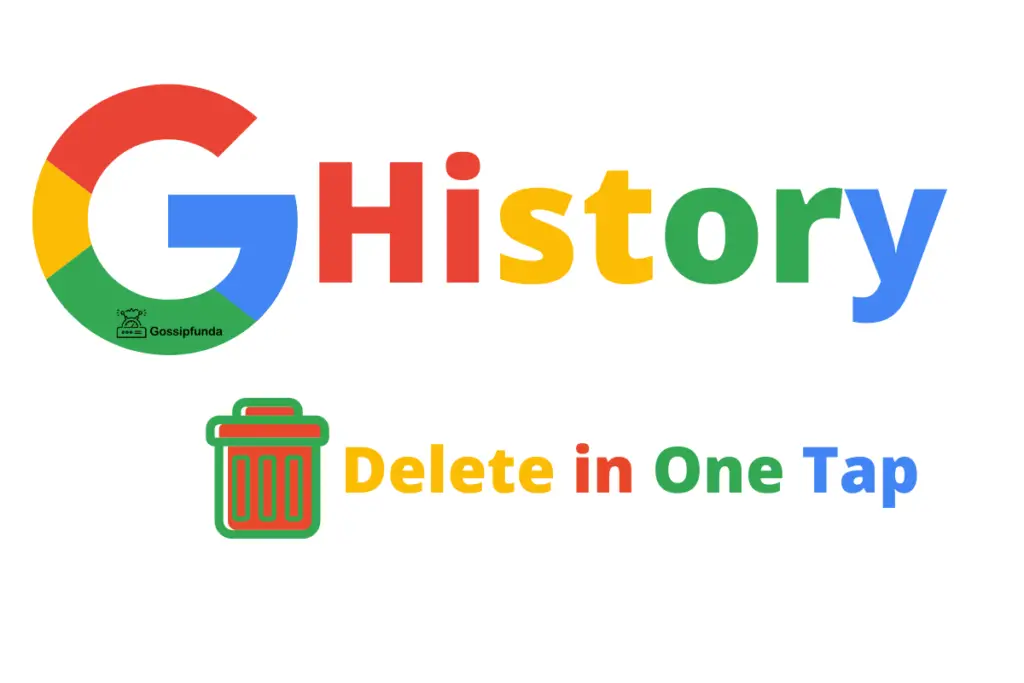This year’s Google I/O android developer conference held in Mountain View, California is providing the technical world with numerous opportunities to make our lives easier. From the advancements of AI to an easy browsing experience, Google is making many advancements in customer satisfaction. Among the many announcements Google made, the one that caught everyone’s attention might be that of a single tap-search history removal feature after Google LAmda. It is a perfect example of how simple ideas can provide a lot of space in privacy along with a more friendly user interface. Let’s see the feature of How to delete Google History in One Tap?

The Quick Delete Feature
The all-new quick delete feature announced by Google enables the users to delete their last 15 minutes of their search history in one single tap. It is a huge leap towards Google’s privacy feature in which they limit the data collected from the user.
This feature can be used when the user has to search anything of a sudden and doesn’t want to see advertisements or promotions based on the search. Google says that it is one of the most demanded features from the users.
How to delete Google History in One Tap?
Even though the feature has not yet been made available, the right path to do it was explained.
Step 1: Go to your Google Chrome home page and click on your profile picture to access the settings.
Step 2: There you can find the option that says “Delete the last 15 minutes”. Tap on it and your data will be removed from your account.
This will prevent the Google servers and your device from storing the spontaneous search data. Consequently, you will never have to see those details or anything related to that anywhere in your browser.
Google Privacy Features and Policies
Every year, numerous cyber-attacks are reported across the world. All these put our emails and many other personal data at risk. The privacy and security features of Google claim to ensure our security in every way possible.
Secure by default
Each Google product is protected with advanced AI-driven technologies. Every day Gmail automatically locks over 100 million phishing attempts. Google photos encrypt 4 billion photos and Google play protect scans over 100 billion installed applications.
Do not miss: Cool Google Tricks
Private by design
This means deliberately making thoughtful decisions about the data that is used for advertisements and other Google products as in when, where, and how they are being used. There is a strict line of principles that solidifies what is in and what is out to be used as data. For example, Google claims to never sell our personal information to anyone. No content stored in our Gmail, photos, and drive will be used for ads purposes. Also, sensitive information like health, religion and sexual identity will not be used for personalized ads.
Google ensures that by enabling privacy by design, they are able to provide us a personalized experience without affecting our privacy.
Differential Privacy
Differential privacy allows you to use large collected data sets while ensuring that your data can never be traced back to you. Google created the world’s largest open-source library of differentially private algorithms to help developers use differential policy. This has proved to be a great advantage in the advancement of many fields including cancer research and census analytics.
Federated learning
Federated learning was invented in 2016 by Google. It empowers Machine Learning models to train crucially with no crude information leaving your device.
Android’s Private Compute Core
This feature was introduced to make billions of Android phones private by design. It is solely open-sourced and intended to confidentially process and secure necessary data. It provides many features including live caption without partitioning audio data with Google or any other applications.
You’re in control
This is where the significance of the quick delete feature pops up. The user has complete control over what amount of his/her data is to be shared for advertisements or any other personalized services. To ensure this facility is why Google has provided Manage your privacy provision in your account. We must realize what we want and act accordingly.
Manually delete your entire Google search history
As Google is yet to make visible the new feature in our devices, you can delete your recent search history manually by a few simple steps. First of all, open the Google app on your Android smartphone and tap on your profile picture. Select the option Search history.
You will then be detoured to the search history page and you can clear the history of your choice. Your history will also be deleted from Google’s My Activity section.
Delete hourly search history
You can delete your search history by “Last hour” or “Last day” through a PC or laptop. You can go to the My Activity option of Google and delete your search history according to an hourly or daily basis. Google also provides an option for you to autodelete your search history in 3 months, 18 months, or 36 months.
Delete search history in Chrome
In Chrome, you can click on the More button on the top right-hand corner. You can then click on History and then again on the coming window, choose History. Now you can choose clear browsing data and choose a time. You can choose “All time” to clear the entire history.
Conclusion
Privacy is one major thing that we lack and strive for in this digital era. Everything is public and everyone is exposed. Eventually, there will come a time when privacy is not even a real concept. But in all those scenarios, we should address the genuine security concerns. An individual must have control of his/her data and how much does he/she want to be in public. It is at the point where we lose that control, the trouble starts.
Google has announced many other features including a new Locker Folder for Google Photos where there is an option for securing private photos from anyone prying. Additionally, it will remind the users of their location history options as to whether it is on or off while Maps provide the places they have already visited. Lastly, the coming Android 12 update will have a new Privacy Dashboard that allows users to see which applications have access to their phone permissions and the timeline of when those permissions were used by the installed applications.
There is still so much a company can do for you, it is now time to step up and be a guard for your own privacy. Avoid granting permissions to unknown websites or applications, restrain from using the same password everywhere, make sure to report any cyberattack that has happened to you. The digital era is full of possibilities as well as challenges. Don’t let the challenges take over and let the opportunities cherish.

I am an Electronics and Communication engineering student from Kerala with a passion for tech writing. I enjoy challenging assignments that require my knowledge and skills. My technical skills include languages Python, C, C++, Arduino. Also, I have experience in Flutter development.


